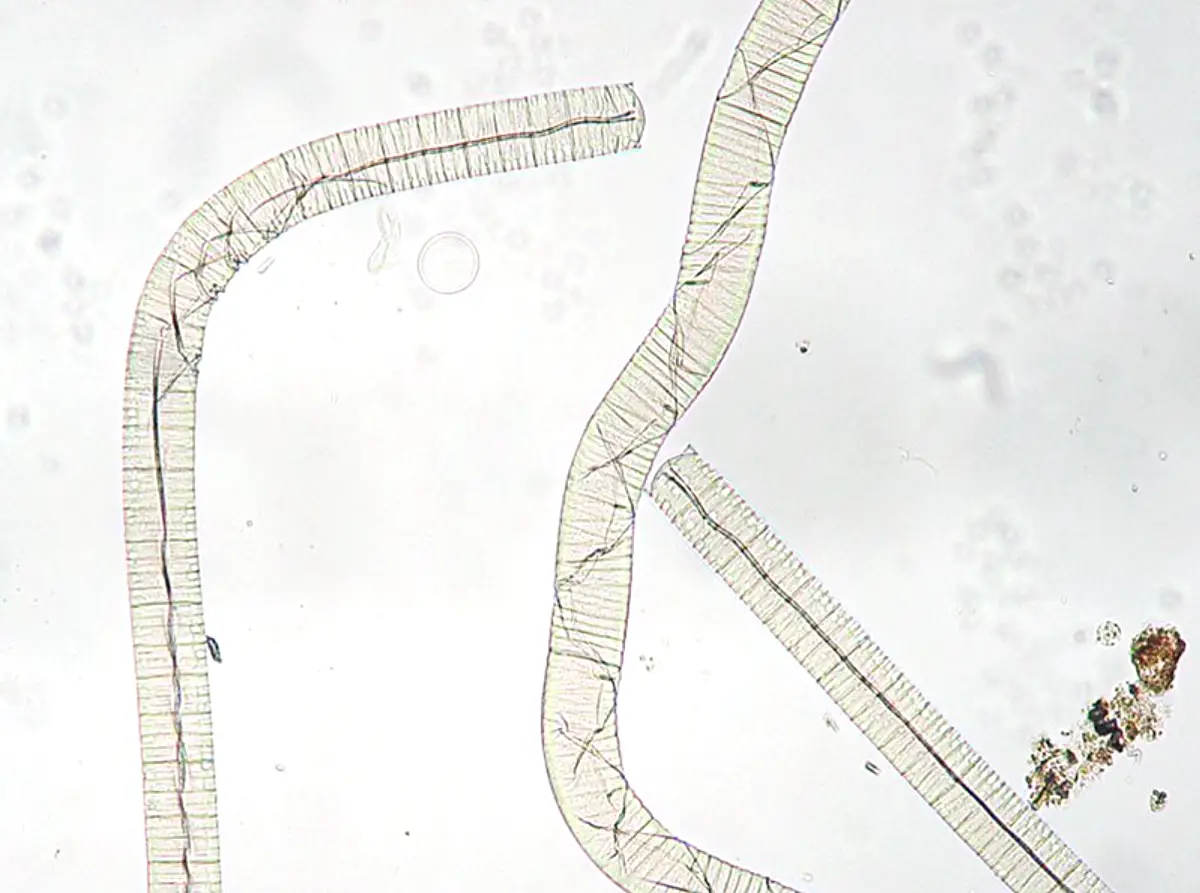Contents
CLASSIFICATION OF OSCILLATORIA
Sub-division :- Algae
Class :- Myxophyceae
Order :- Oscillatoriales
Family :- Oscillatoriaceae
Genus :- Oscillatoria
One can hardly miss Oscillatoria when on a collection trip. It is almost cosmopolitan and occurs abundantly on moist rocks, cliffs, damp soil, muddy banks of streams, ponds, surface of the water reservoirs, sewage ponds, etc. A few species are marine and float on the surface.
STRUCTURE OF A FILAMENT AND SINGLE CELL
- Filaments occur either singly or interwoven to form a flat or spongy, free swimming mat.
- Filament consists of an inconspicuous and barely recognizable sheath enclosing unbranched trichome.
- Trichome consists of a single row of cells.
- The apical cell of the trichome may have calyptra-thick wall on its outer free face.
- The cells show typical myxophycean cell structure. It has no definite nucleus, no chloroplasts or no membrane bound organelles (prokaryotic cell).
- The cell shows many shining cyanophycean granules.
- Floating species show numerous gas vacuoles.
REPRODUCTIVE STRUCTURES
- The only method of reproduction is hormogone formation.
- The hormogones (small pieces of trichome with one to many uniform cells) are formed as a result of the death of intecalary cell or by the formation of special biconcave separation discs.
- Hormogones are liberated by the disintegration of discs.
- Each hormogone develops into a new filament.
IDENTIFICATION OF OSCILLAtORIA
- Sub-division – Algae
- Thallus simple,
- Chlorophyll present.
- Cell walls of cellulose.
- Class – Myxophyceae
- Chromatophore not organised, pigments diffused, blue-green.
- Photosynthetic reserve cyanophycean starch.
- True nucleus absent.
- Sexual reproduction absent.
- Order – Nostocales
- Thallus with trichomes, unbranched, or with false branching.
- Hormogones, heterocysts, exospores and endospores generally present.
- Family – Oscillatoriaceae
- Trichomes uniseriate, sometimes tapering at the ends.
- Heterocysts and spores absent
- Sheath absent or diffluent.
- Genus– Oscillatoria
- Trichomes not in bundles.
- Trichomes without a sheath.
- Trichomes straight and cylindrical.


Leave a Reply